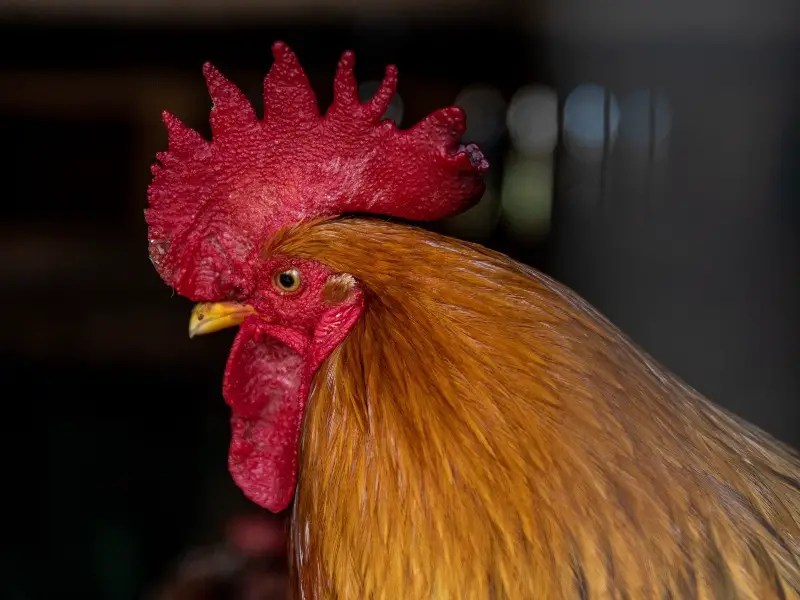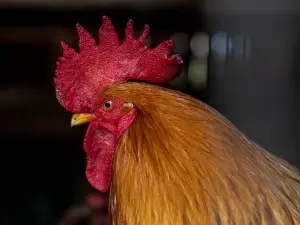
Many of the foods and drinks that humans eat and drink can be shared with animals, animals like chickens, but some food and drink cannot.
Pedialyte is a drink that humans take when dehydrated, this drink can be given to chickens as well, this article looks into how Pedialyte can benefit chickens
Table of Contents
Pedialyte for chickens:
If you’ve ever needed a convenient oral rehydration solution then you’ve likely heard of Pedialyte. This is an over-the-counter oral rehydration drink that can be taken by both adults and children. It can be taken by chickens as well.
Chickens can suffer from heat stress, this condition can quickly go from serious to deadly if not treated in good time. Pedialyte can be given as a treatment for heat stress in chickens.
Can I give my chickens Pedialyte?
Yes, Pedialyte can be given to dehydrated chickens, this drink will quickly rehydrate your bird.
Pedialyte contains electrolytes (sodium, potassium, and chloride) as well as small amounts of sugar (glucose). The sugar and electrolytes in this drink help to restore the fluid levels in the bird’s body.
Electrolytes are also helpful as they replenish the nutrients in the bird’s body, nutrients are lost when birds experience heat stress.
Not only that, but electrolytes also help in that they will boost the bird’s immunity, support kidney function, and support respiratory functions.
Rehydrating the bird using Pedialyte is more effective than rehydrating the bird using water because Pedialyte contains electrolytes and sugars whereas water does not.
Rehydrating with Pedialyte is preferred over rehydrating with a sports drink because Pedialyte contains less sugar than sports drinks. Giving chickens too much sugar can cause them to develop obesity as well as laying issues.
It is recommended that you give birds unflavored uncolored Pedialyte over the ones with flavor and color.
The reason behind this is that it is alleged that the flavored Pedialyte, namely the grape flavored one, has been linked to the death of cockatiels.
The flavored Pedialytes contain acesulfame potassium and aspartame, these are controversial artificial sweeteners.
Aspartame breaks down into aspartic acids, formaldehyde (and then into formic acid known as wasp sting poison), and phenylalanine. This is toxic to birds, it isn’t good for humans either.
How to serve Pedialyte to chickens:
A dehydrated bird needs to be kept in a cool location and can be given Pedialyte until it goes back to acting normally. You can go ahead and return the bird back to the flock once the bird is acting like its old self again.
You may have to give the bird Pedialyte for a day or two to help it get back to normal, but be sure to only offer this drink to your bird for four to six hours a day for a week, no longer than this.
If your bird isn’t recovering after being given this treatment then you may need to take the bird to the vet to be examined, diagnosed, and given treatment
Give your bird a drink made up of ½ a cup of Pedialyte to ½ a cup of water. If you’re using the powdered Pedialyte, simply mix this into your birds’ water as a way of adding electrolytes.
If the bird isn’t able to drink on its own then you’d need to hand feed the bird, use a spoon or a small syringe to hand feed the bird till she can drink on her own.
FAQ’s:
How do you rehydrate chicken?
Giving your bird water alone will rehydrate the bird but you can rehydrate the animal quicker by adding an electrolyte supplement to the water.
Can you give baby chicks Pedialyte?
Yes, you can give baby birds Pedialyte but it is recommended that you rather give the bird a homemade rehydration solution.
Giving the bird a homemade rehydration solution is recommended over giving Pedialyte because it has less sugar than Pedialyte, it is also recommended because you know exactly what is in the solution unlike with commercial products.
But both will hydrate your bird and will have your baby bird acting like normal soon enough.
Homemade Pedialyte for chickens:
If you don’t have Pedialyte on hand you can make your own homemade rehydration solution using ingredients that are likely already in your home.
Mix up a teaspoon of baking soda, a tablespoon of sugar, a teaspoon of salt, and a gallon of water to make the rehydration solution.
You can also make a rehydration solution by mixing up ½ a teaspoon of baking soda, 2 cups of water, 2 tablespoons of brown sugar, honey or molasses (molasses preferred), and ½ a teaspoon of salt.
Mix this up until everything is dissolved and then feed it to your bird. Keep this solution refrigerated
If you don’t have any Pedialyte on hand, and you can’t give your bird a homemade rehydration solution, then you can give your bird Gatorade as a substitute.
Note: Gatorade contains more salt and sugar than the above solutions so do not give this to your bird on a regular basis.
If you enjoyed this article then you may also be interested in other chicken related articles. Here are some articles that you may be interested in: Syringe Feeding A Chicken, Home Remedies For Chicken Pecking, Chickens Pecking Each Other Bloody, Can You Stop Chickens From Pecking Each Other Using Vinegar?, Chicken Swollen Foot, Not Bumblefoot

